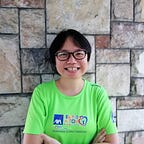Breasts and Eggs
The voice of Mieko Kawakami pierces through the reproduction of gender norms
The other night I dreamed about my mother. I could not see her face but I knew that she was working hard. She was preparing for dinner in the kitchen. I guess that was dinner because the oil-stained window allowed the remains of afternoon sunlight in at 6 o’clock. As usual, they were scattered on the kitchen floor, keeping my mother company when she cooked.
I had a tough time thinking about the meaning of that dream. I do not dream often to start with. It was a picture of my mother, who is in her 60s and still continues to care for the family. What else did the dream try to tell me? A few days after I had the dream, I finally realized it could be due to reading Breasts and Eggs.
Breasts and Eggs was the first physical book (in English) that I have bought since Malaysia went into waves of movement control orders (our version of lockdown). The book and the story were calling me to own it since it arrived at one of our local indie bookstores (Lit Books). The author, Mieko Kawakami, explores everything to do with being a woman and different in a masculine world. Translated from Japanese into English, her tone is warm and her voice is more powerful than I expected. Maybe it is because in the story she was speaking for “her” (the protagonist —…
